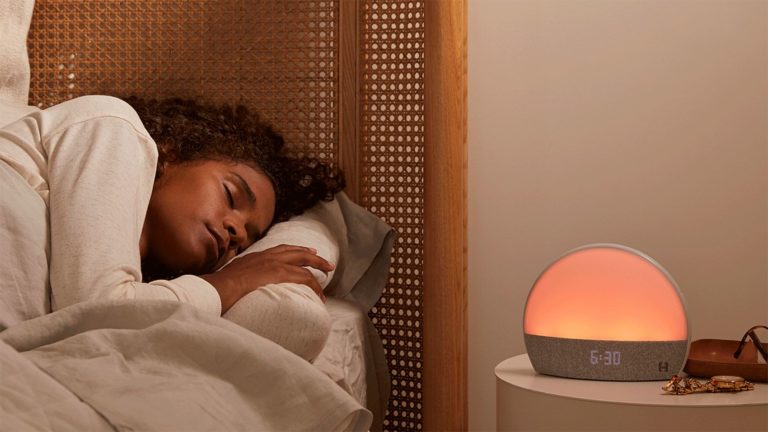
Sleep is a pillar of high performance. It’s one of the most important things you do.
Low-quality sleep screws with almost every aspect of your biology. It causes fat gain, muscle loss, brain fog, increased cortisol, and just about everything else that you don’t want as a biohacker.
Poor sleep is surprisingly common, too. According to the CDC, a third of American adults are short on sleep, and almost 20% of the people have irritability, mood swings, and lack of focus thanks to sleep deprivation[*].
If you have trouble sleeping, you already know how much it sucks. You can take pills for it, like Ambien or benzodiazepines, but they’re addictive, come with side effects, and don’t give your biology rest the same way real sleep does.
I’ve written a lot about sleep hacking before, and now I have a new strategy that’s been working well for me: nighttime wearables. Here’s how they work on your sleep hormones and why they can help you get deeper, more restorative sleep.
Melatonin and Adenosine: How Your Sleep Hormones Work
Melatonin is your body’s main sleep hormone. Your pineal gland releases melatonin at night and it triggers your sleep cycle, making you feel tired and winding down your body and brain. Your brain only makes melatonin at night and in darkness, so it also works as a seasonal clock—the earlier the sun sets on a given day, the more melatonin you produce. Unless you flood your house with blue light at night from electronics and LEDs, which blocks your melatonin production and screws with your sleep cycle[*].
Adenosine is your other sleep hormone. It gradually builds up in your brain throughout the day, and when it reaches a high enough level, ideally at night, your brain starts to slow down and you get sleepy.
Caffeine wakes you up by suppressing adenosine; conversely, THC increases your adenosine levels, making you relaxed and tired.
You can take supplements that influence your melatonin and adenosine levels, which is a good strategy for sleep hacking.
And thanks to new technology, you can also hack your brain without any drugs or supplements. That’s what I’ve been doing lately and the results are excellent.
Hapbee: Drug-Free Sleep Hacking
I recently partnered with Hapbee, a wearable company made by biohackers, for biohackers.
Hapbee uses a technology developed by the US military that measures magnetic signatures of substances like melatonin and adenosine, as well as many others, like caffeine, CBD, and THC.
Hapbee can replicate those molecules and deliver their magnetic signature through vibrational signals, which gives you the same effects without you actually having to take the substance. You get all the benefits, with none of the possible downsides. It’s a badass groundbreaking technology that works shockingly well, and it’s been a game-changer for my daily biohacking.
I’ve tracked my sleep every night for about 10 years now. I have my sleep routine pretty dialed in—it’s rare that something makes me sleep better than I already do. Hapbee consistently increases my sleep quality by almost 10%, which is very impressive, considering how optimized my sleep already is. That increase is more effective than any other sleep hack I’ve done in years, and if your sleep has more room for improvement, I suspect Hapbee will cause an even greater increase for you.
A Hapbee device isn’t the only way to help improve your sleep cycle, and if you haven’t tried all the sleep hacking basics, you may want to start there. But if you want to go straight to the major upgrades, Hapbee is a great option.
I always work to get a special deal so my readers can try the latest biohacking tech, and Hapbee agreed to give a special discount to people who order through my site. Happy biohacking!










